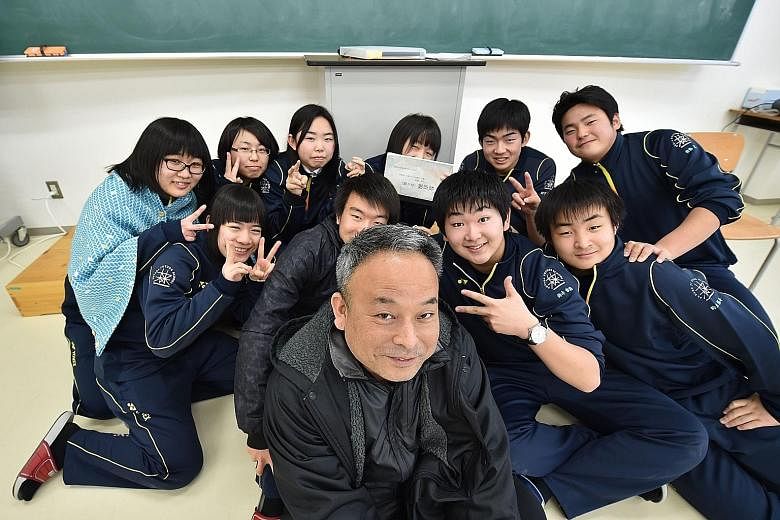HIRONO (Japan) • Teenager Satsuki Sekine's home was destroyed in Japan's 2011 tsunami disaster and her family fled in the nuclear panic that followed. But crueller still were the insults and stigmatisation she faced in the community where she sought refuge.
Rather than offer sympathy, her new classmates bullied her with nasty jibes - part of an epidemic of discrimination in a nation where the vulnerable and the different can be marginalised.
"She's a Fukushima kid, she carries contagious radiation" were among the taunts the evacuee, now 15, endured in her new home far from the ravaged north-east and the crippled Fukushima nuclear plant. "My house was destroyed in the earthquake and swept away in the tsunami," the teen said. "One of my relatives died in the disaster. We had to flee from the nuclear accident. After all that, I was bullied at school."
She is now living near her original home, in a region that is slowly recovering from the disaster that drove more than 160,000 people from their homes when the tsunami-lashed plant went into meltdown. But she is just one of many children and adults who have faced insults, ostracism and even violence in towns and cities where they sought sanctuary.
Japan is famed for its social order and exquisite manners. But behind the facade is a suffocating group identity that can result in bullying of those who stand out, a dynamic blamed for a high rate of child and adult suicides.
In the immediate aftermath of the quake-tsunami disaster that left 18,500 dead or missing, a sense of solidarity swept Japan as it faced its greatest post-war crisis and municipalities welcomed the displaced. "Ganbarou Nippon" (Don't give up, Japan) was a common refrain as the nation pulled together.
But reaction to the refugees at street level was often cold.
Sixteen-year-old Urara Aoyama tried hard not to let her new classmates know her family came from a town beside the stricken plant.
"But word spread when I entered middle school," said Urara, who, with Satsuki, now attends high school in Hirono near their original homes, which remain off limits.
Urara, too, was questioned about the contagiousness of radiation, taunted and told she should just go away. "They said such things behind my back, sometimes intentionally in loud voices so I could hear," she said.
Expert Asao Naito from Tokyo's Meiji University said Japan's education system suppresses individuality and makes children prone to pick on the different. "So evacuees from Fukushima are preyed upon in the totalitarian environment of Japanese schools," he said.
Lawyer Tomohiro Kurosawa said part of the problem is that for many Japanese, the Fukushima evacuees are not seen as "victims" as nobody in authority has yet been held accountable. Not a single arrest has ever been made, plant operator Tokyo Electric Power Company was rescued with public money, and the government is committed to restarting nuclear plants.
"When victims speak out under these circumstances, they appear to criticise the nation and are penalised socially," Mr Kurosawa said. "Government policies cloud the status of the victims, creating room for others to reject and attack them."
Mr Kurosawa, who has represented radiation victims from Hiroshima and Nagasaki, said the stigma imposed on Fukushima has historical echoes of the treatment that survivors of the atomic bombs endured.
Despite their suffering and status as the first victims of the atomic age, many were shunned - in particular for marriage - owing to prejudice over radiation exposure.
AGENCE FRANCE-PRESSE

